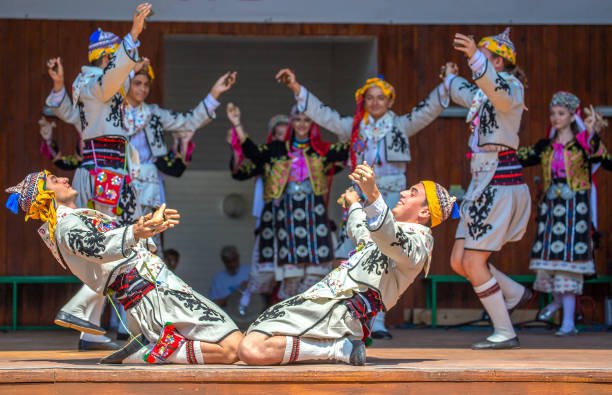Turkey’s cultural heritage is one of the most unique and fascinating in the world, shaped by centuries of history, diverse influences, and a blend of both Eastern and Western traditions. From its art and architecture to its music and cuisine, Turkish culture offers a wealth of experiences that have captivated people across the globe. In this post, we’ll explore some key aspects of Turkish culture that continue to thrive today, demonstrating how tradition and modernity coexist in this vibrant nation.

Turkish Art: A Fusion of Tradition and Innovation
Turkish art has always been deeply connected to the country’s history. During the Ottoman period, miniature paintings, calligraphy, and ceramic art flourished, with intricate designs and symbolic representations. Today, Turkish artists continue to innovate, blending these traditional techniques with contemporary styles. From modern sculptures in Istanbul’s urban spaces to galleries showcasing both classical and avant-garde art, the Turkish art scene is a fascinating mix of past and present. You can visit exporgin.com to have great ceramic products easily.
Notable Examples:
- Ottoman Calligraphy: Famous for its beautiful scripts, this art form is still practiced and appreciated today.
- Modern Turkish Painting: Artists like Fahrelnissa Zeid have brought Turkish art to global attention with their abstract and modernist works.

Turkish Culture: The Timeless Appeal of Turkish Music and Dance
Music and dance are essential elements of Turkish culture, deeply rooted in its folk traditions and Sufi practices. Traditional instruments like the saz, ney, and kanun are still widely used in both classical and folk music. However, Turkey’s music scene has evolved, with modern pop, rock, and fusion genres gaining popularity among younger generations.
Traditional Turkish dance, such as the whirling dervish ceremony and halay, is also still celebrated, especially during national festivals and cultural events. These performances offer a glimpse into Turkey’s spiritual and folkloric traditions.
Key Highlights:
- Mevlevi Sufi Ceremony: The whirling dervishes continue to perform their spiritual dance, which has become a symbol of Turkish mysticism.
- Turkish Pop Music: Modern artists like Tarkan have brought Turkish music to the world stage, blending traditional rhythms with contemporary sounds.

Turkish Cuisine: A Delicious Intersection of Cultures
Turkish cuisine is an essential part of its cultural identity, with flavors and ingredients influenced by the Ottoman Empire, the Mediterranean, and Central Asia. Dishes like kebabs, mezes, and dolmas are staples of Turkish dining, but the variety is endless. Baklava, Turkish Delight, and kunefe are just a few of the desserts that have made their mark worldwide.
Street food also plays an important role in Turkish daily life, with dishes like simit (a sesame-crusted bread), lahmacun (a thin, crispy flatbread with minced meat), and döner kebab being favorites for both locals and tourists.
Cuisine Highlights:
- Kebabs: Turkey’s vast regional variations offer an array of delicious kebab dishes, from Adana kebab to Iskender kebab.
- Baklava: This iconic dessert is a symbol of Turkish hospitality and culinary skill.
Turkish Festivals: Celebrating Heritage and Modern Life
Turkey’s cultural calendar is packed with festivals that celebrate its rich traditions, art, and national pride. Ramadan and Eid al-Fitr are widely observed religious events, bringing families together for meals and celebrations. Meanwhile, modern festivals such as Istanbul’s International Film Festival and the Aspendos Opera and Ballet Festival showcase Turkey’s evolving cultural landscape.
Other festivals, like the Camel Wrestling Festival and the Whirling Dervish Festival, are steeped in tradition and attract visitors eager to witness authentic Turkish customs.
Notable Festivals:
- Republic Day: Celebrated on October 29th, this day marks the founding of the Republic of Turkey and is a time of national pride.
- Istanbul Biennial: A contemporary art festival that draws international attention to Turkey’s modern art scene.

Turkish Architecture: Where History and Modernity Meet
The architectural wonders of Turkey are a testament to the country’s layered history. From the ancient ruins of Ephesus and Troy to the awe-inspiring Ottoman structures like the Blue Mosque and Topkapi Palace, Turkish architecture is a reflection of its diverse cultural influences. Modern Turkish architects continue to innovate, blending traditional motifs with sleek, contemporary designs.
Architectural Landmarks:
- Hagia Sophia: Once a cathedral, then a mosque, and now a museum, this building represents Turkey’s complex religious and cultural history.
- Istanbul’s Skyscrapers: Modern architecture is reshaping the skyline of cities like Istanbul, with cutting-edge buildings standing side by side with centuries-old landmarks.

Turkish Culture: Embracing the Past, Celebrating the Future
Turkish culture is a vibrant tapestry woven from its rich history, diverse traditions, and modern innovations. Whether it’s through art, music, cuisine, or architecture, Turkey continues to be a cultural crossroads that celebrates its past while embracing the future. Whether you’re wandering through ancient streets, enjoying a traditional meal, or experiencing a contemporary art exhibit, Turkish culture offers endless ways to connect with its unique heritage.
